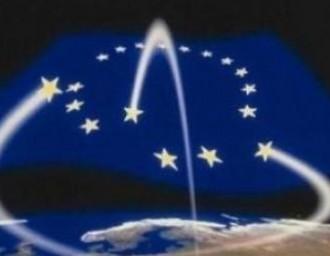Günter Verheugen: EU doesn’t have strong political will for its enlargement

A discussion about “The present and the future of the EU” took place in Minsk. Former vice-president of the European Commission Günter Verheugen participated in it. It was his first visit to Belarus.
Is the EU going to expand in the near future? What problems are the most daunting for the Europeans? Does the EU have exact strategy concerning Belarus? These and other questions were fielded during the meeting by Günter Verheugen:
- The chief executive officer of the IMF stated that despite current crises, the EU has good future. But many people paint a very black picture. Thus, American experts from the National Secret Centre of the US forecast decline of the EU economic and political influence in the world. Irresponsibility in respect to the integration strategy, poor management, structural drawbacks in the economy were named as the reasons for that. But I personally see more optimistic perspectives. The EU shows rather dynamic development. And no one in the union itself wants it to get divided. Despite regular gloomy prognoses in the British and American Media, still lots of countries are willing to enter the EU. The problems in the 21st century are far too global for one country to decide. The only way to save the life of the EU is to compete in the economics and politics. One more factor that makes me sure that the European Union will get further development is its historical memory. I don’t remember the war myself; but I do remember how developed morally and politically destroyed Germany after the war. Trust me – European politicians do not want to let this happen in the future. And this motivation is very strong, though not very understandable for the modern youth, as they believe that the war was long time ago and can’t be ever repeated.
Further development of the EU
- There exist several opinions on how to move further. Some suggest pushing national candidates onto the European level; others – moving in the direction of the United Sates of Europe. But there are those who say that the time has come to look back and to analyze what we were doing wrong and what should be improved. I am convinced that further development of the EU will depend on the challenges of our time. We have to admit that all the Europeans except Belgians are not ready to abandon the statehood. And we have to rely on interests of the society.
The perspective of the EU enlargement is not on the agenda in 2013. We have countries-members that advocate the EU enlargement. But there are also lots of those who say that the EU has many problems to decide before it can decide whether it is worse enlargement or it is not. Though we have certain obligations before the countries of Balkan Peninsula, there is no strong political will to support the enlargement of the union. Still, politicians are aware how important it is to save the open door policy, meaning that the EU is open for each and every country. To save this perspective, I believe that we should increase our common market so that it is able to compete with the markets of India and China.
Strategy according Belarus
-Energy policy is the main question for the EU economics and politics in the future. Belarus and Ukraine have their resources and potential – that is why these two countries are very important for us.
Though I cannot but agree that the EU doesn’t have special politics in relation to Belarus, as well as we don’t have special strategy in relation to Russia, Ukraine and even the US. The thing is that foreign politics is not about integration. Countries-members decide these questions for themselves.
In Europe everyone understands that we need dialog with Belarus. But your government has to make steps forward. The conditions of the dialog revival are well-known to everybody – political and economic liberalization, human rights. From my experience I can tell that when the country takes up positive changes, the EU always welcomes that. Štefan Füle, European Commissioner for Enlargement and European Neighborhood Policy, has even introduced the term “bigger for bigger”.
Belarus is a European country and Belarusans are Europeans. And it will be very sad if you are not able to overcome the process of stagnation which has already been delayed.
Bureaucracy within the EU
- This is one of the most difficult structural problems; not only for the EU, but for every other country as well.
Everyday process of European integration is the monopoly of top-ranking politicians: they make deals and it is through them that more than 90 per cent of decisions in the EU are made. Still, the Commissioner is fully dependent on the information provided by the service that works with him. But he cannot control the work of this service. And during my service I kept telling that the system has to be changed; but for now I don’t see political will for that.
Information
Günter Verheugen served as European Commissioner for Enterprise and Industry from 2004 to 2010. In the 60s he studied history, sociology and political science at the University of Cologne and at the University of Bonn.Starting from the 60s he worked in the ministries of home and foreign affairs. In 1983 he became member of the federal parliament, where he participated in the work of the parliamentary group on external relations. In 1999 he became EU commissioner for Enlargement of the European Union. He was presiding over the accession of ten new member states in 2004. He continued in the following Barroso Commission as Commissioner for Enterprise and Industry, also being promoted to one of the five vice presidents. In 2010 he left the EU Commission reshaped cabinet and now he is the principal of the Carl Friedrich Goerdeler-Kolleg.
-
03.01
-
07.10
-
22.09
-
17.08
-
12.08
-
30.09








































